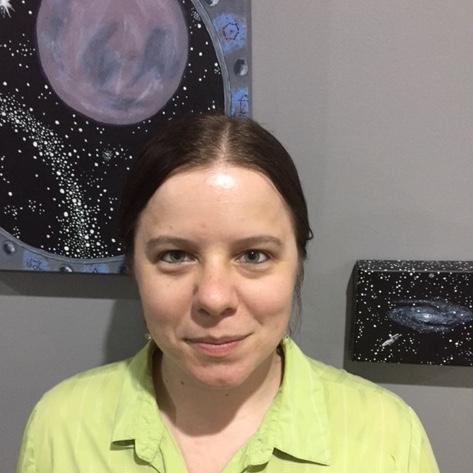
Sun bursts, geomagnetic storm could create conditions to see aurora borealis
TORONTO, May 10, 2024 – At least five coronal mass ejections – bursts of plasma coming off the sun – have occurred recently prompting the first severe G4 Geomagnetic Storm Watch issued since January 2005, says York University astronomy Professor Elaina Hyde. With all this activity, it’s possible people as far south as the GTA may be able to see the aurora borealis tonight or over the next few nights, especially if they seek out a less light polluted area.

“Yesterday, there were several strong flares as well as a sunspot cluster about 16 times greater than the diameter of the Earth, which would have been just barely visible using the same type of safe solar viewing glasses as used during the April 8th eclipse,” says Hyde, director of the Allan I. Carswell Observatory at York. “Our current solar cycle has only had three severe geomagnetic storms, one in March 2024, one in October 2003 and the current one.
“The October 2003 storm resulted in power outages in Sweden and damaged power transformers in South Africa. The rating for solar events goes from minor G1 events to major G5 events, so a G4 is near the top of the scale but not as big as the famous 1989 Quebec event which had a rating of about G5.”
Charged particles from the sun will be impacting Earth’s geomagnetic field which heightens the opportunity to witness the northern lights in Toronto, as long as the sky is clear.
Check the “aurora forecast” on the National Oceanic and Atmospheric Administration website for best areas to view it from: https://www.swpc.noaa.gov/products/aurora-viewline-tonight-and-tomorrow-night-experimental
Is there any danger this sun activity will fry satellites or power lines?
“This level of activity is not usually associated with major electrical events on Earth like sparking power discharges, the danger to satellites is much higher, but a similar storm did damage some power transformers in South Africa in 2003,” says Hyde, who is available to comment. “In particular satellites that require many corrections to avoid collisions could be at risk in particular communications or power blackouts would likely be our biggest risk.”
Best time to possibly view the aurora borealis tonight or over the next couple of nights:
British Columbia 8 p.m. to 2 a.m.
Alberta 9 p.m. to 3 a.m.
Saskatchewan 9 p.m. to 3 a.m.
Manitoba 10 p.m. to 4 a.m.
Ontario 11 p.m. to 5 a.m.
Quebec 11 p.m. to 5 a.m.
Maritimes 12 a.m. to 6 a.m.
Newfoundland 12:30 a.m. to 6:30 a.m.
